Jamunapari goats are an excellent choice for beginners. Jamunapari goats are a popular breed of dairy goat from India. They are known for their high milk production and large, pendulous udders. Jamunapari goats are a hardy, easy-to-care-for breed that makes an excellent choice for those interested in goat farming.
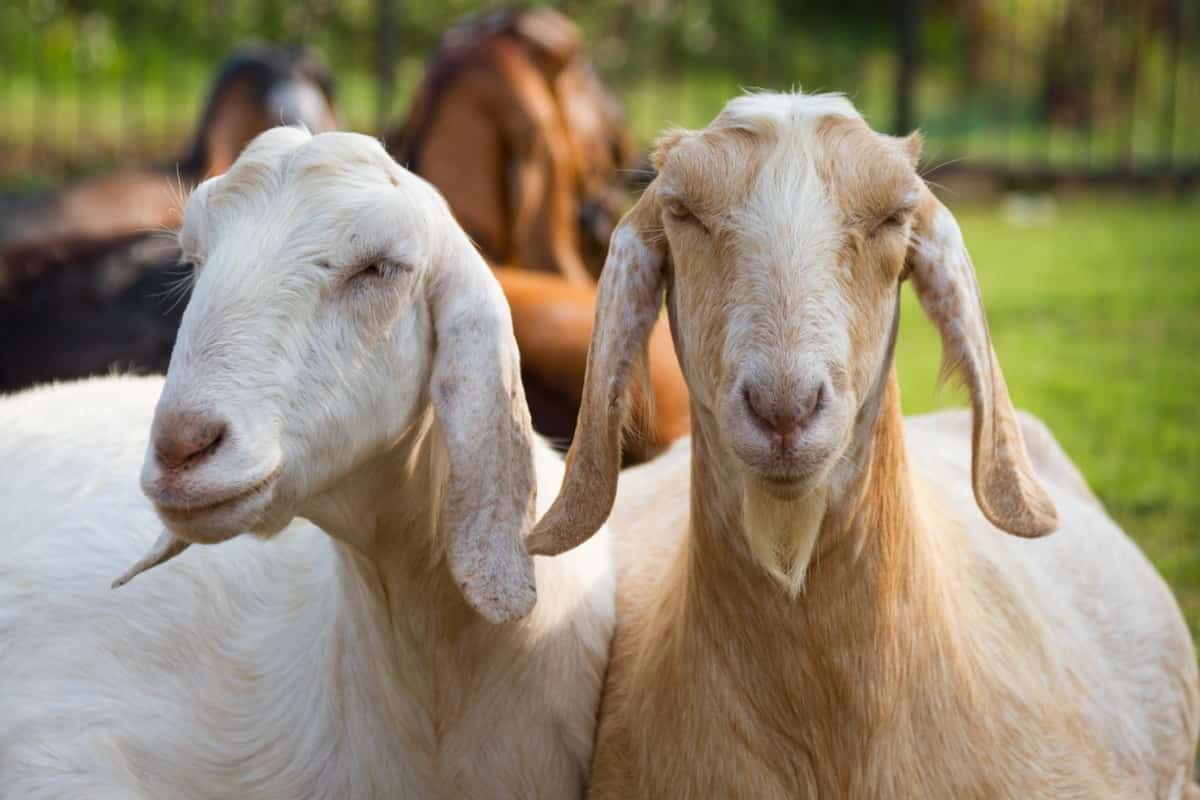
Key Rules to Start Jamunapari Goat Farming
Characteristics of Jamunapari Goats
- Jamunapari goats are characterized by their long, slender necks and long, floppy ears. The coat of a Jamunapari goat is usually white with black markings on the head and legs.
- Jamunapari goats are considered one of India’s best dairy breeds. They can produce up to 2-3 kgs of milk per day. The milk of Jamunapari goats is very rich in fat and protein content, making it ideal for making cheese and other dairy products.
- They are well suited to hot, dry climates and can be kept on various pasture types. Jamunapari goats are also known for their high milk production, making them a good choice for dairy operations.
What are the Requirements for Jamunapari Goat Farming?
- Firstly, you’ll need access to quality hay and pasture land. Goats are browsers, not grazers like cows, so they need plenty of foliage to stay healthy. You’ll also need to provide them with clean water and fresh food daily.
- You will need to choose a good location for your farm. The climate in India is tropical, so it is important to find a place with ample shade and ventilation. It would help if you also built proper housing for your goats, pens, and pasture areas.
- You’ll need to have access to quality hay and pasture land. Goats are browsers, not grazers like cows, so they need plenty of foliage to stay healthy. You’ll also need to provide them with clean water and fresh food daily
- Purchasing healthy and high-quality breeding stock for your farm is also important. You can buy ready-made kids from a reputable breeder or raise them yourself.
- If you decide to raise them yourself, provide them with good nutrition and health care so that they grow into strong and healthy adults.
- Finally, you’ll need to build secure housing that protects them from the elements and predators.
In case you missed it: Key Rules to Start Sirohi Goat Farming: Requirements and Business Plan
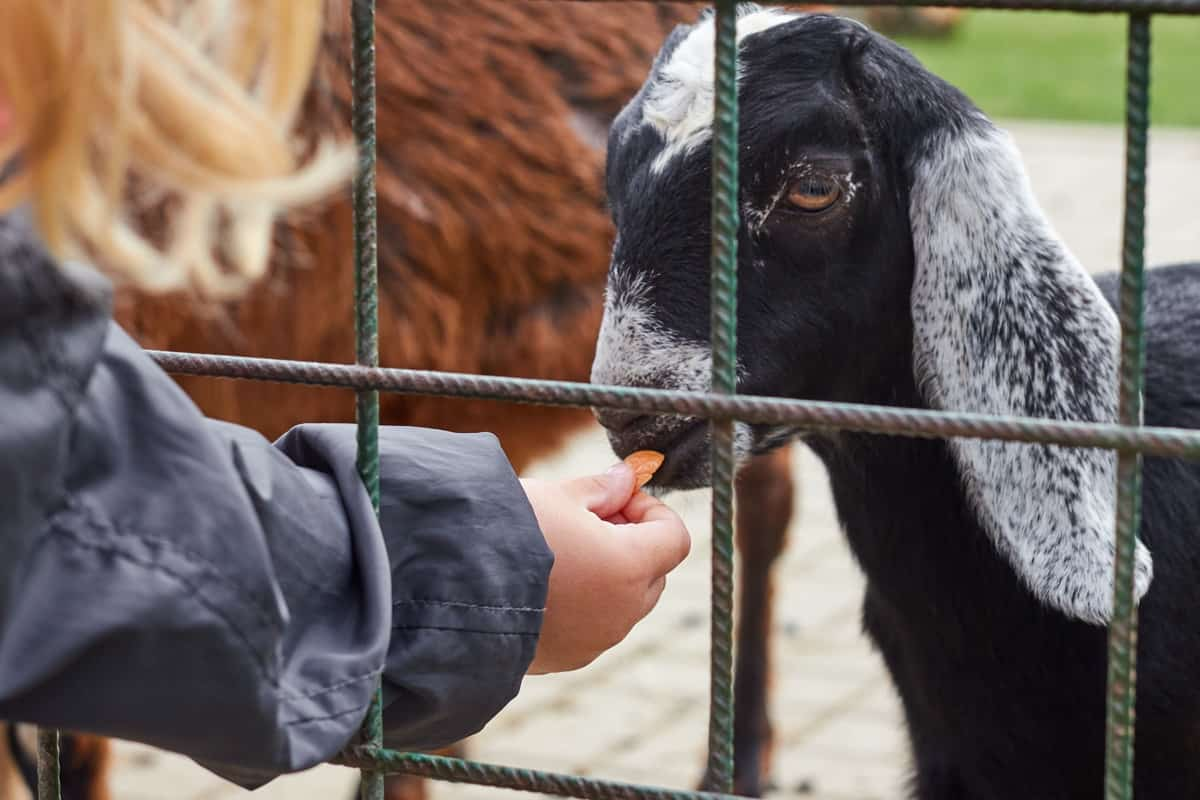
Feeding Tips for Jamunapari Goats
- It is important to know the nutritional needs of Jamunapari goats and how to feed them to maintain a healthy herd properly.
- Jamunapari goats are browsers and prefer to eat leaves, twigs, and other vegetation. They should have access to fresh browse daily if possible. In addition to browsing, Jamunapari goats also need good quality hay or grass hay for roughage.
- You can supplement your goats’ diet with a commercial goat feed high in protein and minerals for additional nutrition.
- Make sure your goats have access to clean water at all times.
- Goats are very curious creatures and will investigate anything new in their environment. Always keep toxins, poisonous plants, and other hazards out of reach of your goats.
In case you missed it: Key Rules to Start Barbari Goat Farming: Requirements and Business Plan
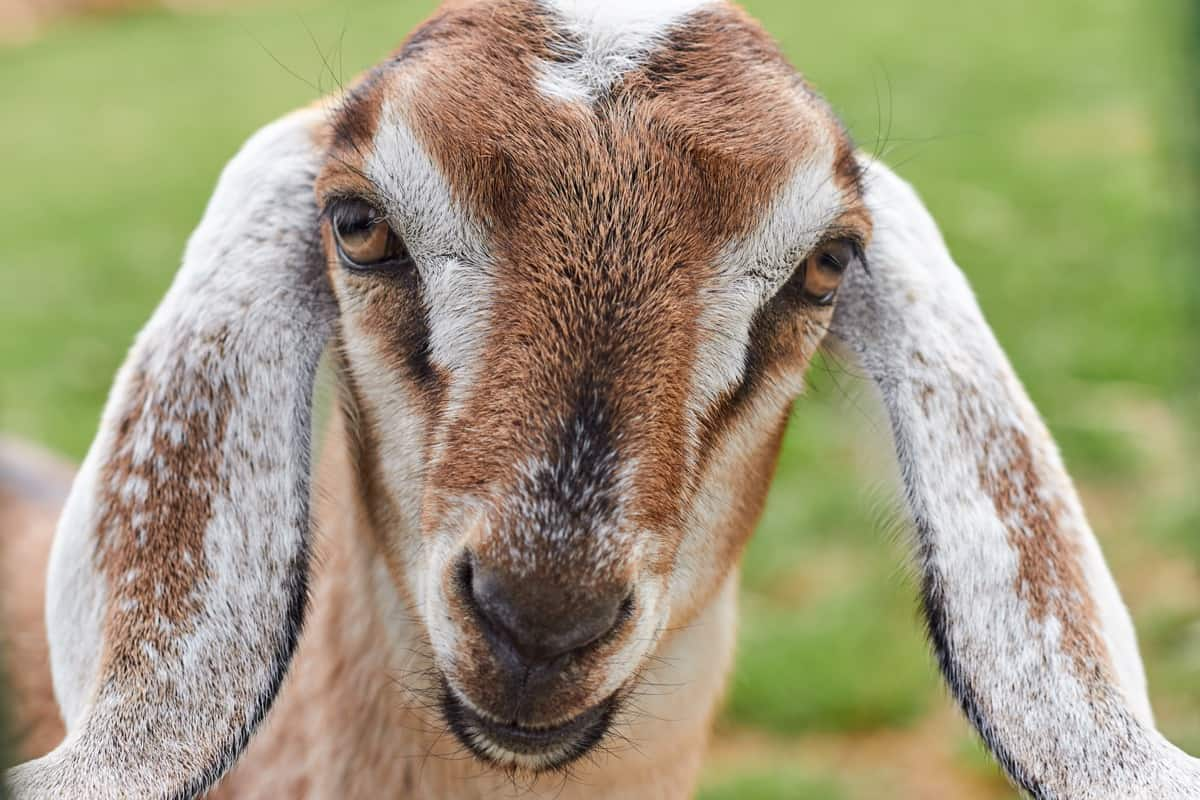
Rules to Start Jamunapari Goat Farming
- Jamunapari goats are a hardy breed that can thrive in many different climates. They are also well-suited for commercial production due to their high milk yield and good meat quality.
- Choose the right location. Jamunapari goats need plenty of space to roam and graze, so your farm should be situated in an area with ample pastureland.
- Build a shelter that can protect your goats from extreme weather conditions. Goats are sensitive to heat and cold, so ensure their shelter is well-ventilated and provides adequate shade in hot weather and protection from the wind and rain in colder months.
- Provide your goats with a healthy diet. Goats are browsers rather than grazers, so their diet should consist of fresh browse (leaves, twigs, etc.), hay, and grain. Avoid feeding them anything moldy or spoiled, which can cause health problems.
- Keep your goats healthy through regular check-ups and vaccinations. Health problems can quickly spread among a herd of goats, so it’s important to keep them up-to-date on their shots and to monitor their health closely.
How to Care for Jamunapari Goats?
- Jamunapari goats are a great option for starting a goat farm. They’re known for their milk production and beautiful white coats, and they make excellent pets. But, like all animals, they require proper care and attention.
- Provide plenty of fresh water for goats. Goats are very thirsty animals and always need access to clean water. If you live in a hot climate, provide shade and protection from the sun.
- Goats are browsers, meaning they prefer to eat leaves and other vegetation rather than grass. They also need access to hay or straw for bedding material. Be sure to provide a mineral block or supplement to help their nutrition.
- Keep them healthy by vaccinating them against common diseases such as brucellosis and tetanus. It would help if you also had your goats dewormed regularly by a veterinarian.
- Provide shelter from the elements; goats need protection from the wind, rain, and sun. A three-sided shed is ideal, but if you don’t have one, simply providing some roof will do.
- Keep them clean and free of parasites. Regularly brush your goats and check them for lice or other parasites. Also, be sure to clean their living area regularly to prevent the spread of disease.
In case you missed it: Key Rules to Start Boer Goat Farming: Requirements and Basics
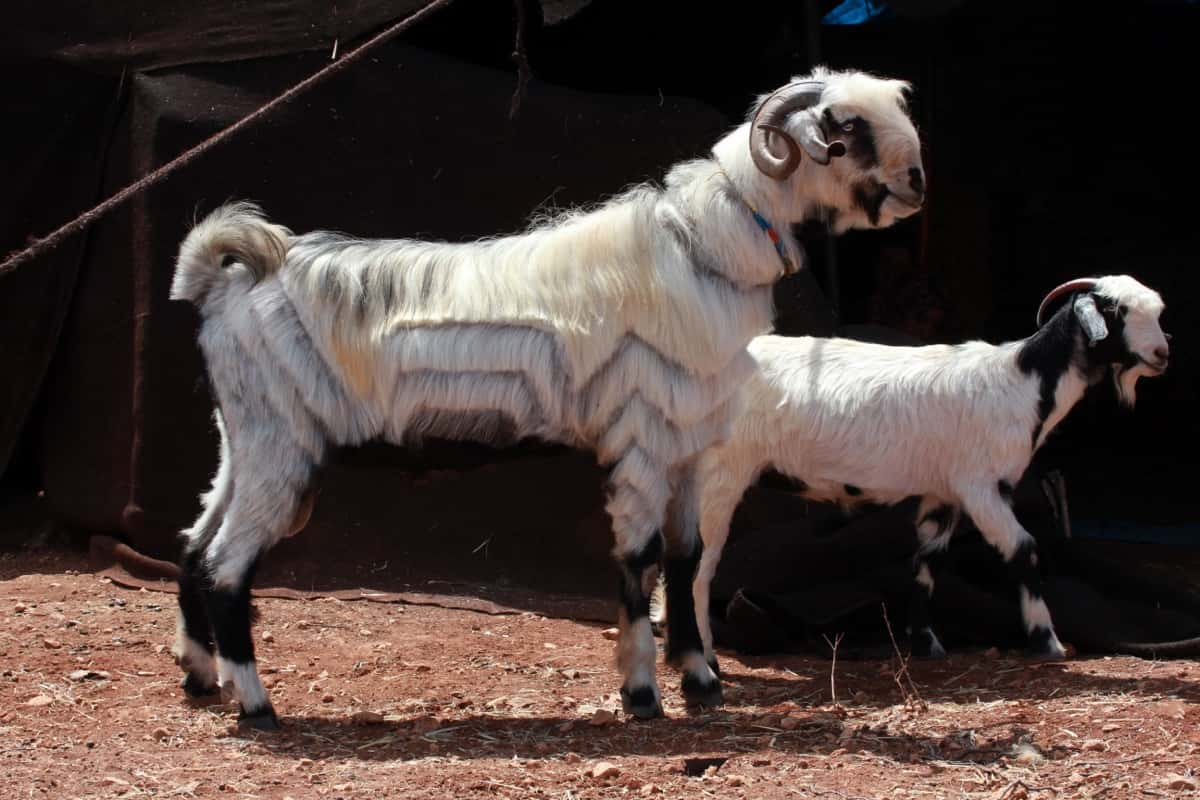
Housing Management for Starting Jamunapari Goat Farming
Find suitable housing for your animals. Jamunapari goats are large animals, so they need a spacious and sturdy shelter to protect them from the elements. Ensure the shelter you choose is well-ventilated and has plenty of room for the goats to move around. You must also provide your goats with access to fresh water and food. Goat feeders should be placed in a clean and dry area, away from the sleeping quarters. It is important to keep the feeding area clean to prevent disease.
Goats are social animals and do best when they are kept in groups. When choosing to house your goats, ensure enough space for them to interact with each other. Create a pasture or grazing area for your goats to enjoy. These simple rules can create a safe and comfortable environment for your Jamunapari goats. Your goats will thrive on your farm for years with proper care and attention.
Key Rules Selecting Location for Starting Jamunapari Goat Farming
- There are different factors to consider when selecting a location for your Jamunapari goat farming operation. The climate and terrain of the area will have a big impact on the health and productivity of your goats.
- The climate should be warm and dry, with plenty of sunshine. Goats do not tolerate cold weather, so a location with mild winters is ideal.
- The terrain should be fairly flat and free of large rocks or other obstacles that could injure goats. Some gentle slopes are fine, but too much-rugged terrain can make it difficult for goats to move around and graze.
- There should be plenty of vegetation for goats to eat, including grasses, weeds, and shrubs. Avoid areas with dense forest cover, as goats are browsers rather than grazers and will not do well on a diet of leaves and twigs.
- Water availability is crucial for any livestock operation, so ensure a reliable source of fresh water near your proposed farm site. Wells or springs are ideal, but you could also use water from a creek or pond if necessary.
Tips for Purchasing Goats for Successful Business
- Consider what you want to use the goats for. Goats can be used for milk, meat, or fiber production.
- Decide what type of environment you want to keep them in. They can be kept in a pasture or dry lot system.
- Purchase healthy animals from a reputable breeder. Make sure to get your animals vaccinated and dewormed before bringing them home.
- Provide your goats with clean water and plenty of fresh hay.
- Monitor your goats for signs of illness and consult a veterinarian if necessary.
Why Choose Jamunapari Goat for Farming?
Jamunapari goats are a hardy, disease-resistant breed well-suited to tropical climates. They are known for their high milk production and good quality milk, which makes them an excellent choice for dairy farming operations. Jamunapari goats are also relatively easy to care for, making them a good option for small-scale farmers.
How to Start Jamunapari Goat Farming?
- Jamunapari goats are native to the Indian subcontinent and are known for their unique milk production capabilities. The breed is particularly well-suited to hot, arid climates and can produce up to 2 gallons of milk daily.
- Firstly, you’ll need to purchase some goats. It’s best to start with a small herd of 4-6 goats to get a feel for the business without too much financial risk. Once you’ve got your goats, you’ll need to provide them with housing, food, water, and care.
- Next, you must get your farm registered with the local authorities. This will ensure that your farm meets all the necessary health and safety standards.
- Finally, you’ll need to market your goat’s milk products. You can do this by setting up a stall at your local farmer’s market or selling online.
Tips for Successful Jamunapari Goat Farming
- Jamunapari goats are one of India’s most popular breeds of dairy goats. They are known for their high milk production and good body condition.
- Choose a good location for your goat farm. Jamunapari goats require plenty of space to roam and graze, so your farm should be located in an area with ample pastureland.
- Build shelters for your goats. Goats need somewhere to sleep and stay cool during the hot summer months. Ensure your shelters are well-ventilated and have plenty of fresh straw or hay for bedding.
- Feed your goats a balanced diet. Goats need a diet that includes hay, pasture, grains, and minerals. You can either grow your feed or purchase it from a local supplier.
- Keep your goats healthy. Regular vaccinations and deworming are essential for preventing disease in your herd. Ensure clean water for your goats to encourage proper hydration.
- Breeding stock is essential for any successful goat farm. Choose healthy animals from reputable breeders to start your goat farm.
Why Jamunapari Goat Farming is Good Business?
Jamunapari goat farming is a good business for many reasons. They are dual-purpose animals that can be used for milk and meat production. They have a high reproductive rate, frequently giving birth to twins and triplets. And they are very resistant to diseases, making them a healthy option for livestock.
In case you missed it: Key Rules to Improve Feed Conversion Ratio (FCR) in Goats: For More Profits in Goat Farming
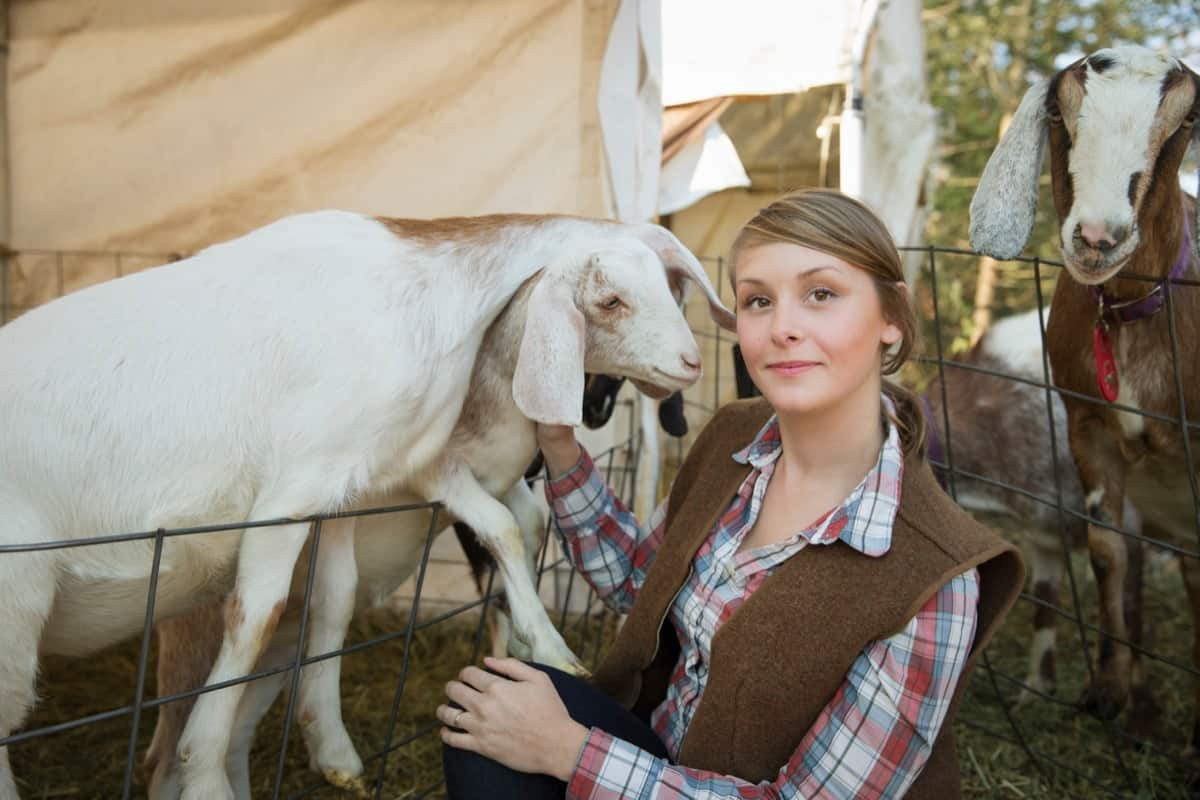
In terms of profitability, Jamunapari goat farming is quite good. They produce high-quality milk that fetches a good price in the market. Their skin is also in demand, as it is used to make leather products. Therefore, there is a consistent demand for Jamunapari goats, which ensures that farmers who rear them can make good profits.
Key Rules for Maintaining Healthy Animals and Maximizing Productivity
- Provide your goats with access to clean, fresh water at all times. Goats are notorious water drinkers and consume up to 3% of their body weight daily.
- Choose a good quality hay or pasture grass to serve as the basis of your goats’ diet. Supplement with grain or other concentrates as needed to meet the nutritional needs of your animals.
- Keep your goats’ housing clean and well-ventilated to reduce disease risk. The bedding should be changed regularly, and stalls should be cleaned every few days.
- Make sure your goats have access to plenty of exercises. Goats need room to roam and play, so provide them with plenty of space. Fencing should be sturdy and high enough to keep predators out and prevent escapees.
Conclusion
Jamunapari goats are known for their high milk production, which makes them ideal for commercial production. Jamunapari goats are a hardy breed that can withstand hot climates and resist many diseases. They are also known for their large size and milk production. Jamunapari goats can be a good investment for starting a goat farm.
- How to Make Houseplants Bushy: Effective Tips and Ideas
- Innovative Strategies for Boosting Coconut Pollination and Yield
- Pollination Strategies for Maximum Pumpkin Yield
- The Complete Guide to Chicken Fattening: Strategies for Maximum Growth
- Natural Solutions for Tulip Problems: 100% Effective Remedies for Leaf and Bulb-Related Issues
- Revolutionizing Citrus Preservation: Towards a Healthier, Greener Future
- Natural Solutions for Peony Leaf and Flower Problems: 100% Effective Remedies
- Maximizing Profits with Avocado Contract Farming in India: A Comprehensive Guide
- Natural Solutions for Hydrangea Problems: 100% Effective Remedies for Leaf and Flowers
- The Ultimate Guide to Choosing the Perfect Foliage Friend: Bringing Life Indoors
- From Sunlight to Sustainability: 15 Ways to Use Solar Technology in Agriculture
- The Ultimate Guide to Dong Tao Chicken: Exploring from History to Raising
- The Eco-Friendly Makeover: How to Convert Your Unused Swimming Pool into a Fish Pond
- Mastering the Art of Delaware Chicken Farming: Essentials for Healthy Backyard Flocks
- 20 Best Homemade Fertilizers for Money Plant: DIY Recipes and Application Methods
- How to Craft a Comprehensive Free-Range Chicken Farming Business Plan
- Brighten Your Flock: Raising Easter Egger Chickens for Beauty and Bounty
- How to Optimize Your Poultry Egg Farm Business Plan with These Strategies
- Subsidy for Spirulina Cultivation: How Indian Government Schemes Encouraging Spirulina Farmers
- Ultimate Guide to Raising Dominique Chickens: Breeding, Feeding, Egg-Production, and Care
- Mastering the Art of Raising Jersey Giant Chickens: Care, Feeding, and More
- Ultimate Guide to Raising Legbar Chickens: Breeding, Farming Practices, Diet, Egg-Production
- How to Raise Welsummer Chickens: A Comprehensive Guide for Beginners
- How to Protect Indoor Plants in Winter: A Comprehensive Guide
- Ultimate Guide to Grow Bag Gardening: Tips, Tricks, and Planting Ideas for Urban Gardeners
- Guide to Lotus Cultivation: How to Propagate, Plant, Grow, Care, Cost, and Profit
- Agriculture Drone Subsidy Scheme: Government Kisan Subsidy, License, and How to Apply Online
- Ultimate Guide to Raising Araucana Chickens: Breed Profile, Farming Economics, Diet, and Care
- Bringing Hydroponics to Classroom: Importance, Benefits of Learning for School Students
- Ultimate Guide to Raising Polish Chickens: Breed Profile, Farming Economics, Diet, and Care
- Ultimate Guide to Raising Australorp Chickens: Profile, Farming Economics, Egg Production, Diet, and Care
- Silkie Chicken Farming: Raising Practices, Varieties, Egg Production, Diet, and Care
- Sussex Chicken Farming: Raising Practices, Varieties, Egg Production, Diet and Care
- Homemade Feed Formulations for Livestock: Discover Cost-effective Starter to Finisher Feed Recipes
- 20 Best Pig Weight Gain Supplements: Top Swine Weight Gain Formulas
- Ultimate Guide to Elderberry Farming: Propagation, Planting, Yield, Cost, and Profit
Excellent